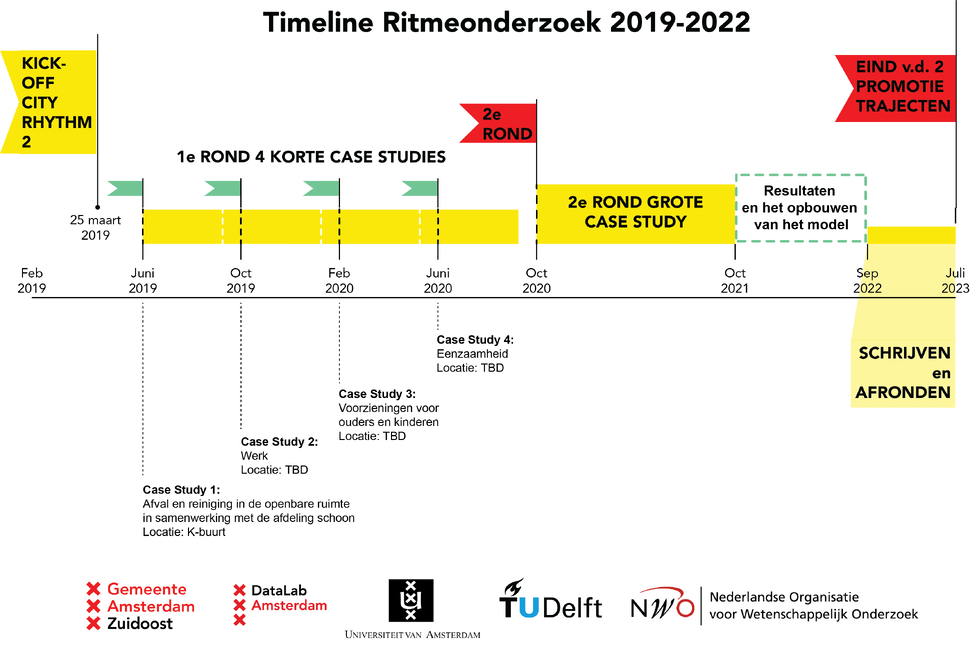DRSR Research Design
Part of
Keywords
Composition of the research team and the timeline of our collaboration
The framework of the research follows a case study approach and includes 4 short-term studies in the first year for exploring the possible approaches to the given questions and collaboration methods between the different fields and expertise (urban studies and data science, neighbourhood level and data level of analysis). The urban questions to be explored during the case studies are decided upon during a workshop session that is carried out together with the neighbourhood teams of Amsterdam Zuidoost. These are cleaning and maintenance of the public space (1), work and unemployment (2), services for parents and children (3) and loneliness (4). Each case study takes around 4 months’ time and includes field work, urban analysis, data analysis and validation of the results. The researchers decide on their agendas by taking into consideration the limited timeframe and manage their planning accordingly to produce meaningful results. After these short-term studies, the researchers will work on a 1-year-long case study where it is aimed to build a rhythm-based methodology that bridges urban and data analysis for drawing new understanding on cities.

Caption: Visualisation of DRSR research design 2018-2022
The research is structured around 2 PhD trajectories, with one PhD from architecture/sociology (working at UvA) and one PhD from data science (working at TU Delft). The collaborators form the city of Amsterdam are Amsterdam Zuidoost neighbourhood teams and the city of Amsterdam OIS department (Onderzoek, Informatie en Statistiek). It is a great potential that the collaborators of the research are engaged with the city with different levels of expertise; while the neighbourhood teams (gebiedsmakelaars) are in direct contact with the area they work in, communicating the needs, statements and opinions of the residents with the city government, the researchers at the Statistics department focus on analysing the city with the different sources of data that is being collected.
The work in progress is published on Amsterdam Open Research Platform. In the interaction between the data and the humanities research teams, and from the perspective of policymaking, the research platform contributes to making this interdisciplinary collaboration successful. Acquired visual data, interviews, rhythm analyses and interventions, proxies, data correlations and translations, models, demo’s, prototypes, and more are all published here. The structural gathering of all these elements, like a ‘logbook’, also facilitates a detailed account of the interdisciplinary research trajectory and can as such be analysed at the end.